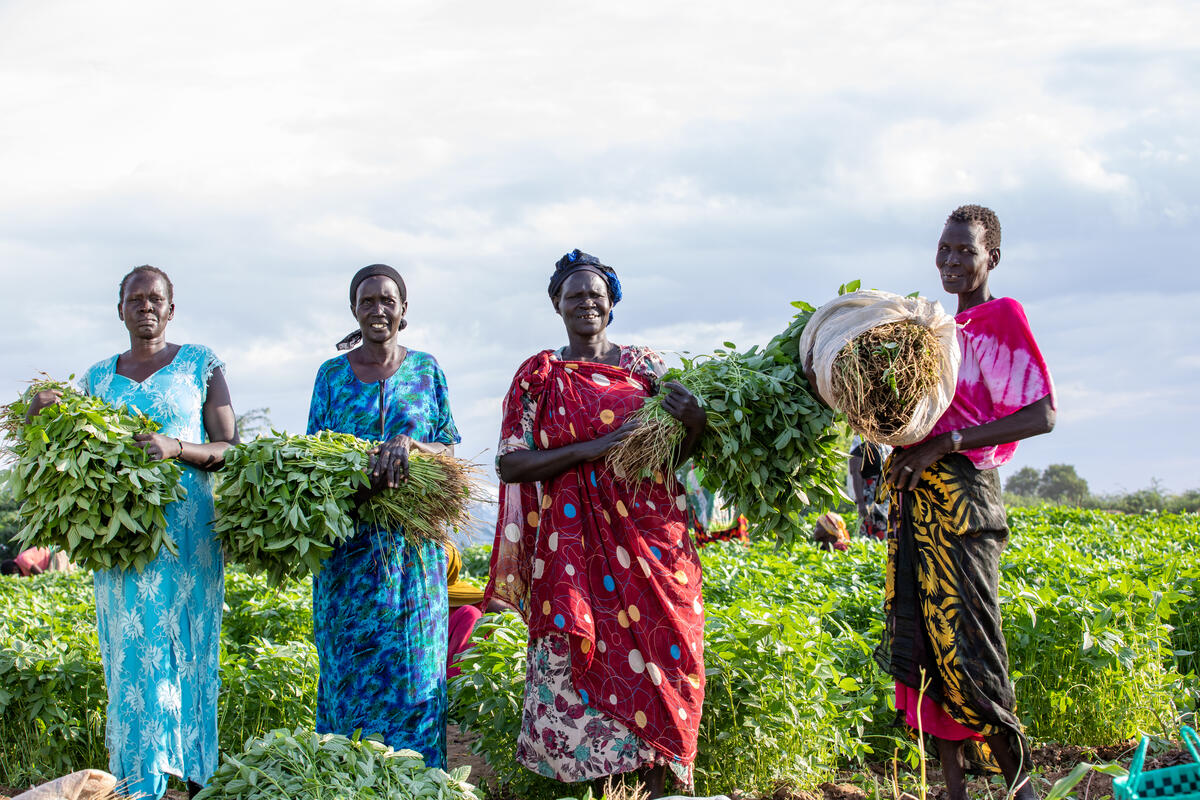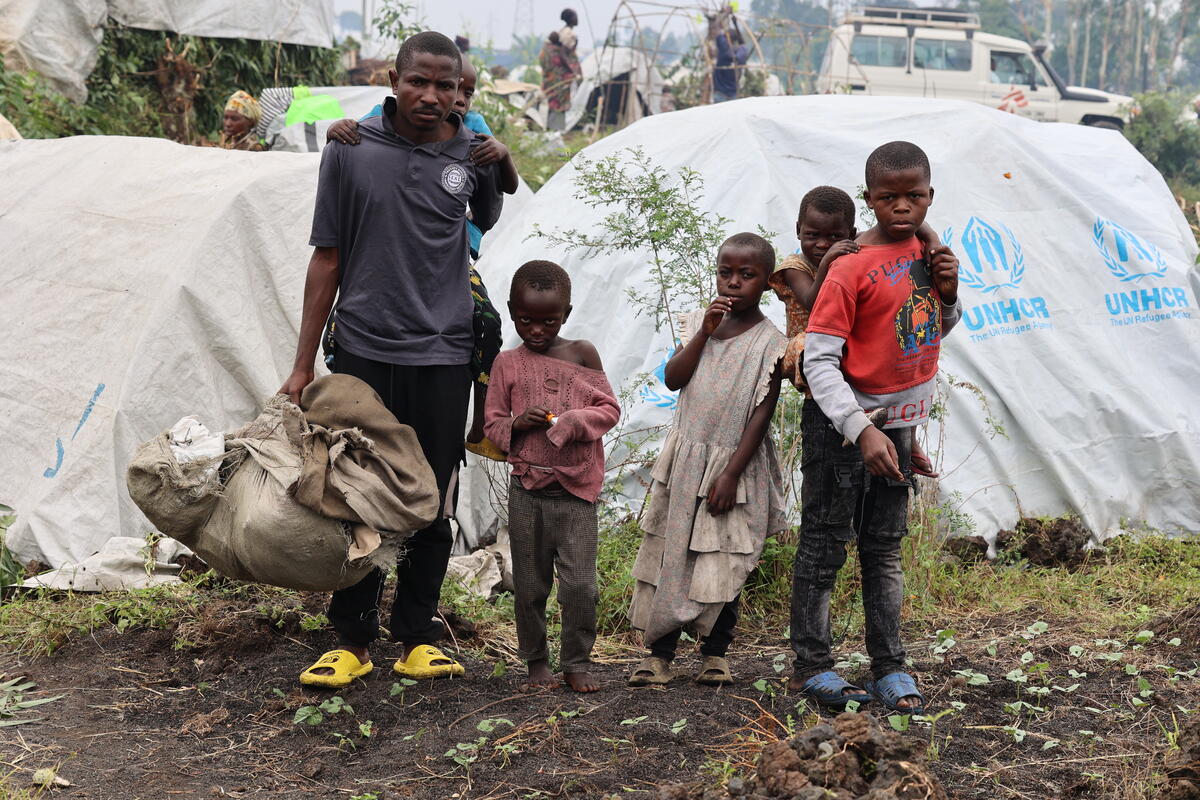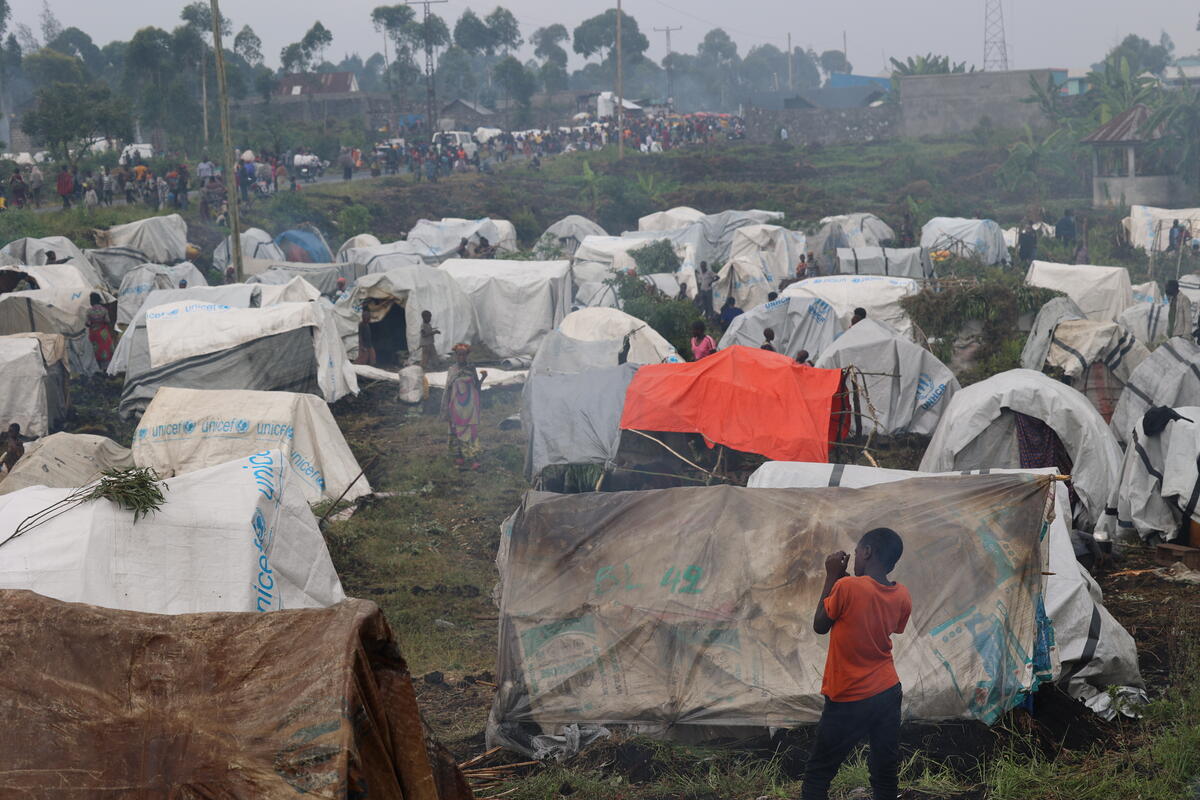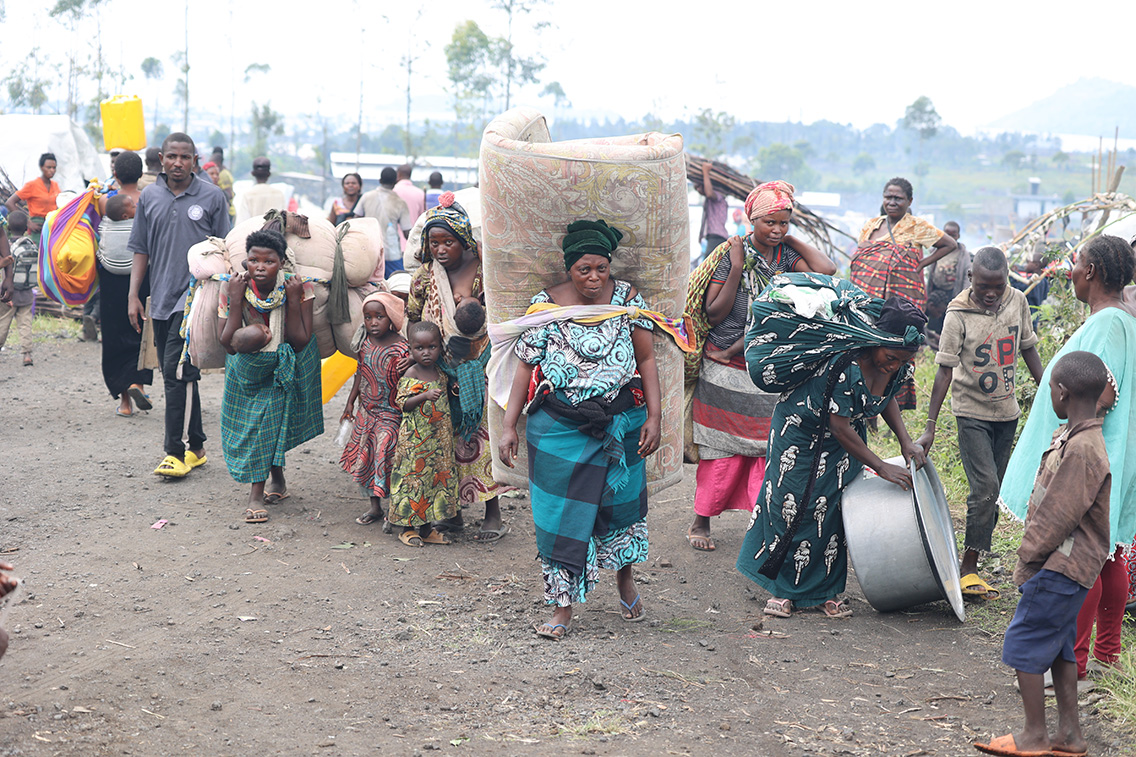Refugee band sounds a positive note for truth-telling in Burundi
Refugee band sounds a positive note for truth-telling in Burundi

BWAGIRIZA REFUGEE CAMP, Burundi, March 19 (UNHCR) - It was a strange and gripping scene as the young man confessed to falsifying his documents, fell to his knees, promised to reform and received forgiveness - all in the space of 15 minutes and in front of a large crowd as well as UNHCR and government staff.
That's what happened recently at this refugee camp set in the rolling green hills of eastern Burundi - as part of a performance and information campaign ahead of a countrywide data-checking exercise slated to start later this month.
In the skit, presented by refugees from the Democratic Republic of the Congo (DRC) who are also members of a performance group called New Vision, our transgressor admits to having illegally registered a Burundian child on his ration card. But now God has told him to come clean, and he recognizes that receiving extra food amounts to theft. A second actor, playing a pastor, offers absolution - if he tells the truth during the data-checking exercise.
"We're trying to get across information in the form of simple, positive messages," explained Hannah Simon, a young Swiss UNHCR associate protection officer. "There will be a verification, everyone has to come, it's good for you, and it's good for us." A key point is that renewal of the refugees' vital government-issued ID cards depends on the verification exercise.
More than 10,000 Congolese refugees live in the neat rows of mud-daub houses at Bwagiriza, outside the provincial capital Ruyigi, where Simon and her colleagues are based. It's been several years since the last verification, and UNHCR and the government refugee agency ONPRA say they need fresh data to understand better who the refugees are and how best to direct assistance.
Most of the refugees fled fighting and insecurity in the DRC, but family members may sometimes return there to visit or work, or have moved to Burundi's cities and towns. And of course children are born in the camp, as was evidenced by the number of pregnant women, women cradling infants, and toddlers taking in the performance.
The data-checking exercise in Bwagiriza includes the information campaign, family interviews and document renewals. And UNHCR staff hope it will serve as a model for subsequent verifications at the Kinama and Musasa refugee camps in Burundi - where as many as 9,000 refugees live - in the capital, Bujumbura, as well as throughout the East and Horn of Africa and Great Lakes region.
That's where the novelty of the attention-grabbing street theatre and a Congolese-style song by the New Vision group come in. "Dear friends, brothers and sisters," sang New Vision's Neema Yvette Bahaya in a rich voice. "You have to be verified in order to be positive . . . you have to come with your family and your documents." But the song and UNHCR's messages contain warnings, too - that refugees who fail to attend the verification risk having their assistance cut off.
Among the hundreds of refugees who braved the hot sun to take in the performances was 18-year-old Kennedy Muhindo-Rosumba."The song was well written and delivered the information in an interesting way," he said. "It was effective how it mixed French and Kiswahili, since that's what we're used to in Congo."
A question-and-answer session followed, and it was clear some refugees were worried about relatives who are in hospital or jail. Simon assured that UNHCR is taking care of them and that they are exempt from attending the data-checking exercise. But she took a firmer stance on the many questions about children living, and perhaps attending school, away from the camp. "Your children are your responsibility," she told the refugees. "It's the role of the head of the family to bring the whole family for verification."
UNHCR expects the exercise to last approximately six weeks. And with the start-date fast approaching, staff are fine tuning their messages and the ways they deliver them, including through a proposed poster contest. In part by consulting with the refugees themselves, particularly refugee women, UNHCR staff members are aiming - like the New Vision musicians - to hit the right note.
By Daniel MacIsaac in Bwagiriza, Burundi








